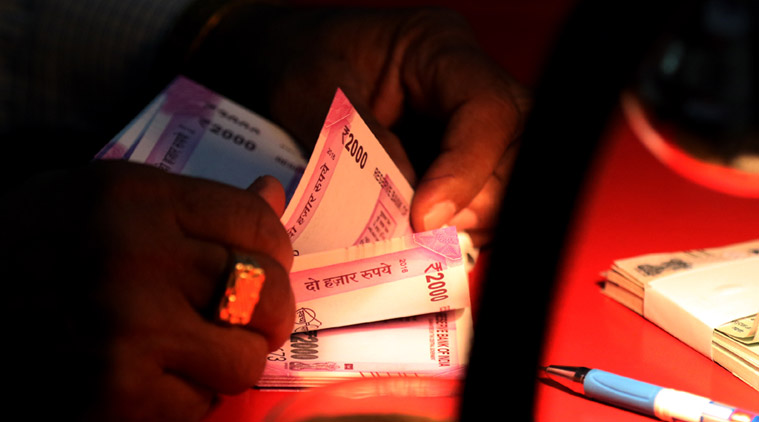 The government expects that in the coming 20 days, the position will be such that the economy would not suffer for want of currency. (Representational)
The government expects that in the coming 20 days, the position will be such that the economy would not suffer for want of currency. (Representational)
WITH LESS than three weeks left for the demonetisation scheme to close on December 30, the government and the Reserve Bank of India have managed to introduce about Rs 5 lakh crore in new currency notes. This is less than a third of the total value of Rs 500 and Rs 1,000 notes — Rs 15.5 lakh crore — withdrawn from circulation on November 8 midnight.
According to a top government official, with this addition, the total currency in circulation today is about Rs 7 lakh crore, the balance of approximately Rs 2 lakh crore being money already available with banks just before demonetisation. Meanwhile, deposits in banks of demonetised notes over the last 32 days have topped Rs 13 lakh crore. These account for almost 84 per cent of Rs 15.5 lakh crore — the total value of currency sucked out of circulation after Prime Minister Narendra Modi announced the demonetisation policy.

Watch what else is making news
The government expects that in the coming 20 days, the position will be such that the economy would not suffer for want of currency. This belief stems from its assumption that the formal economy was working with active circulation of about Rs 9 lakh crore to Rs 10 lakh crore. So, in the next three weeks, it expects to bring about Rs 2.5 lakh crore more in new currency in circulation.
The official told The Indian Express that the production of currency by the government and the RBI press was between Rs 12,000 crore and Rs 15,000 crore a day. At the upper end of this estimate, new currency of Rs 2.85 lakh crore is estimated to be printed, and at the lower end Rs 2.28 lakh crore, from December 12 till December 30. “This will be good to meet the demands of the economy,” said the official.
But in actual terms, the Rs 9 lakh crore to Rs 10 lakh crore that will be available by the end of December would be just 51-57 per cent of the total value of currency in circulation — Rs 17.5 lakh crore — before the demonetisation decision was announced. Officials said that average deposits per day have trickled down to Rs 12,000 crore from about Rs 45,000 crore per day previously. On the other hand, withdrawal of currency per day has gone up to about Rs 16,000 crore.
The government expects that a significant percentage of the money that returns to the system will be captured by the recent amendments to the Income-Tax Act. Banks have been asked to furnish details of deposits of over Rs 50,000 in Jan Dhan accounts, over Rs 2.5 lakh in savings bank accounts and Rs 12.5 lakh in current accounts to the revenue department. The I-T department is also preparing to send notices and issue summons after January 1, 2017, in cases of “suspicious” transactions in accounts that are red-flagged during data analysis.

 The government expects that in the coming 20 days, the position will be such that the economy would not suffer for want of currency. (Representational)
The government expects that in the coming 20 days, the position will be such that the economy would not suffer for want of currency. (Representational)






























